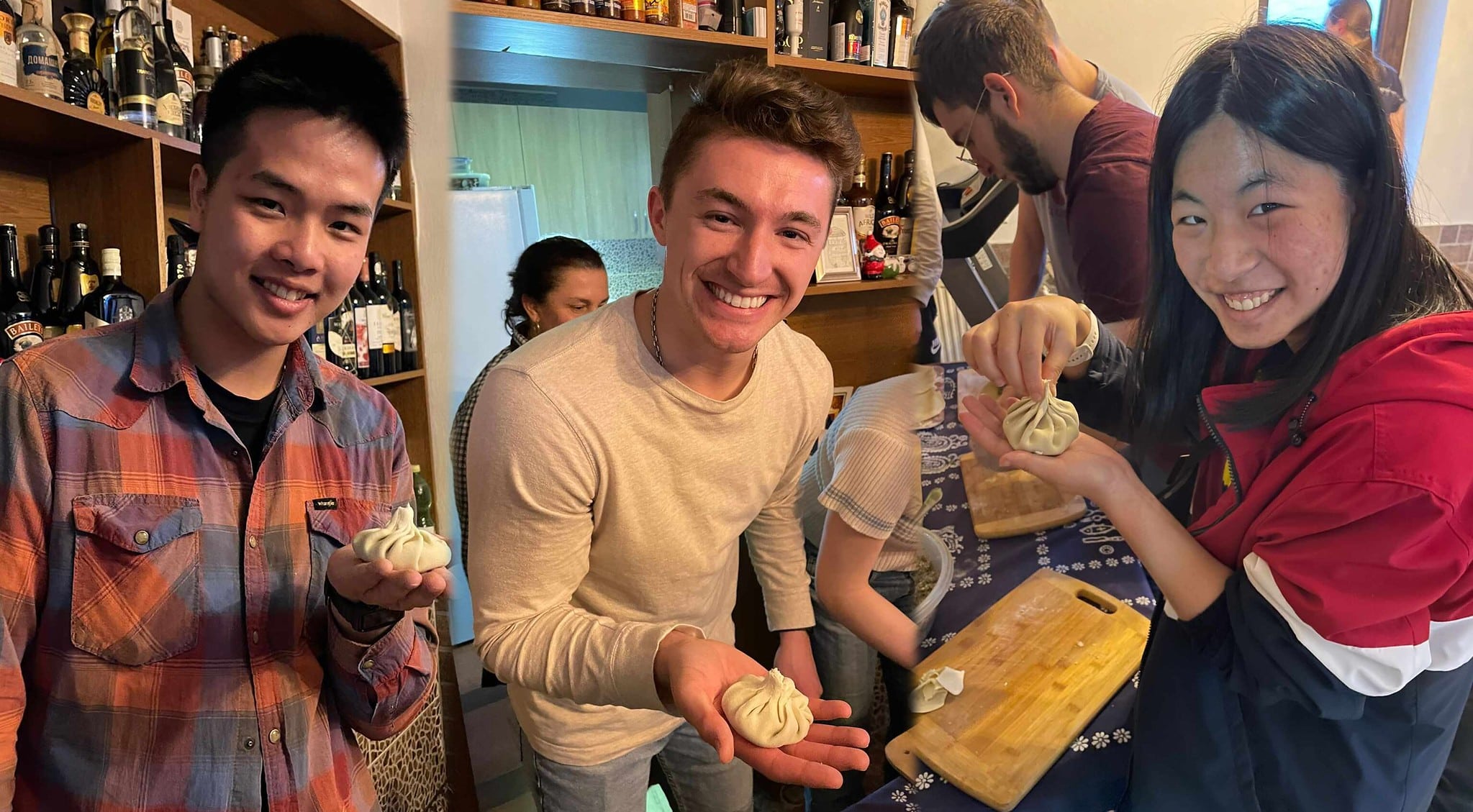Some of our students report not feeling culture shock at all. Some are surprised by how much culture shock they experience. Often, those most affected are those who did not expect it. So how can you prepare to live in a new culture and get the most out of the experience? How do you prepare to return home and for the reverse culture shock that can entail? This guide will try to show you how.
What is Culture Shock?

SRAS locations are very foreign environments for most of our students. You can expect your overall stress level to naturally be a little higher due to the fact your regular support group and usual way of life will be replaced by something quite different. You will likely find that lots of little things you used to take for granted, such as doing laundry or being able to run to the store for something like a new towel, are more difficult. You don’t know the city or your environment and often asking people for help is harder because of the language barrier. When something goes wrong the people you would usually call to vent about it are suddenly much further away and in a time zone where people are sleeping while you are abroad feeling stress.
Because your stress level is higher, your emotions will be intensified. Your anger will be angrier and your happiness will be happier. You might find that you get angry, stressed, or annoyed much more quickly than you would otherwise. It’s okay! As you learn about your new environment and make new routines, life gets easier.
This brief guide will help you to understand what to expect. You should also know that the site you are on is designed to help you overcome many difficulties and help you feel more at home (from finding a new towel to finding a church to attend). Also, as an SRAS student, you should always feel free to contact us via the telephone numbers or emails provided in the orientation guide we will send you as part of your pre-program orientation. We can usually point you in the right direction to whatever you need.
What are the Stages of Culture Shock?
Culture shock is usually conceptualized as having three phases. The stages are not always progressive – you might skip back and forth between the first two before reaching the third. The three stages include:
-
Honeymoon Phase. You may experience feelings of euphoria and excitement, making delightful discoveries about your new environment, such as with foods, music, and customs. You are happy and everything is wonderful.
-
Negotiation Phase. Some of the cultural differences you’ve noticed may start to annoy you, perhaps even intensely. You feel homesick, crave certain foods that are hard to find where you are (peanut butter, Mexican food, American-style pancakes, Dorritos, Kellogg-brand cereals, and much more can be hard to find in most of our locations). You experience mood swings and/or feel melancholy. You may even start to hate the host culture.
-
Adjustment Phase. You begin to see the balance between the good and bad differences you see. You develop new routines and a new support network. Your way of life may be drastically different than how it is at home, but you’ve adapted to your new setting and are feeling more like yourself again. Sometimes this stage can take months to reach – but it is generally good for you; you will emerge stronger and more creative than before. Hang in there.
Why Might I Experience Culture Shock in SRAS Locations?
-
Language Environment. You may suddenly feel like a small child who is incapable of making others understand what you want, and – worse yet – you may feel others are treating you as a child. You will not understand every conversation you have and hear. Even if you are an intermediate or advanced speaker it will take you some time to get used to the new language environment, the rich vocabulary and the modern speech rate. Even if you have been to your host country before, be prepared to experience some anxiety and stress while you readjust to having all forms of communication in a foreign language.
-
Different Norms. You may find you have difficulty relaxing at first in public, since you may not know how to react in certain situations or are surprised to how people react to you in certain situations. Is it appropriate to smile and thank the cashier? Is it normal to be pushed over by a woman who’s trying to get out of the metro car? Why did the store clerk get annoyed with me when I tried to hand her the money rather than place it on the tray? Don’t worry – this phase passes fairly quickly; you will learn by experience. Our best advice is to overcome the temptation to avoid interacting with people and accept the experiences as just another part of your education abroad.
-
Social Isolation. You may suddenly feel disconnected from everyone you know, and left out of the events going on at home. Most of us are used to checking email and social-networking pages several times a day, while this is often not possible in all SRAS locations. While you may not be concerned about this before you head abroad, be prepared for the stress this can cause once on the ground. You may also have difficulty making friends with locals. This does not mean you are a failure at making friends or that the locals don’t like you – it is usually related to the language barrier or that people in large cities (all SRAS locations have populations of over one million). This doesn’t mean you shouldn’t try to be social – you certainly should, but it’s best to keep expectations for relationships realistic.
-
Different Standard of Living. Living spaces in large cities tend to be smaller than many Americans are used to. Often, a full family might live in a space smaller than the first floor of your family home back in the States. Especially older people in most SRAS locations have been taught to keep, maintain, and fix things – meaning that many things in a living space may appear older – although they will usually still be clean and in good repair. Roads and infrastructure, especially in the Caucasus and Central Asia, are often functional but also older and not maintained as well as most roads and infrastructure in the US.
-
Apparent Rudeness/Coldness. In Slavic and some Asian cultures, the smile is used most often as a reaction to something funny or pleasant or an earned sign of friendship. Meanwhile, smiling for the sake of smiling can be considered a sign of insincerity or even of mental imbalance. People in service industries (waiters and waitresses, post-office clerks, store and vending clerks, etc) may treat you as though you are imposition to them rather than the ultimate source of their paycheck.
-
How to Succeed in Culture Shock Behavioral Norms. Local cultures in SRAS locations tend to be more blunt, straightforward, and even aggressive than what you may be used to – verbally and physically. Some of this is big-city culture, similar to what you might find in New York. Again, SRAS locations all have over a million people living in them. You may be asked about your financial means. You may have your political and religious beliefs questioned outright. You may hear stereotypes about your culture – some of our students have heard such things as “Americans are like children” and “Americans have no sense of real history.” Try not to get offended – generally such statements are made without the speaker realizing the logical fallacy of generalization they are making (same as when Americans speak generally of Russians, Europeans, and most foreign cultures). Treat such statements as conversation starters and reply openly, calmly, and confidently. You will begin to form relationships with locals as you begin show them that you are not stereotype, but a multi-faceted, real person.
Do not be surprised if locals feel they have the right to tell you what to do, particularly older individuals. Your host mother may claim you must wear a hat – and she may force it upon your head if you resist. A stranger on the street may tell you not to sit in that spot because it is “dirty” or because you will lose your fertility by sitting on something cold, or for some other reason. These people believe that they are being helpful and we encourage you to take these things in stride. Know that such behavior is particularly common in older women; the Slavic babushka is at once a loved, respected, and often feared cultural institution. Again, consider any such encounter as part of your education abroad.
People in larger cities can also be more physically aggressive. For instance, it is not uncommon to push strangers out of the way or to sit or stand so close that you are touching a stranger while on public transportation (and sometimes impossible not to do both at rush hour).
-
Soviet Images and Symbols. Symbols of Communism are everywhere throughout most of the post-Soviet space. While this is rapidly changing in Latvia, change is less rapid in Central Asia, for instance. One reason for this is that it is a major expense to remove and replace monuments and symbols and there are A LOT of symbols left behind by history. However, a more important reason is that for many, although they will not deny that repression existed under the USSR, these symbols represent a time when their country was part of a world power. They are symbols of a time when their grandparents and great-grandparents achieved remarkable things in science and space, won military victories, and made massive social advancements in healthcare, education, and industry. The people in all SRAS locations now celebrate their own regional and local identities. However many also don’t intend to forget the USSR existed. They consider it part of their heritage and will tell you that there were good and bad things that happened in the USSR (and they are, in fact, right – reality is always complex).
-
Clothes and the Body. You might notice that most locals in SRAS locations tend to dress up as opposed to down. Guys heading to university classes not uncommonly will be wearing suits, sweaters, tucked in shirts, and dress shoes. Women are often in skirts and heels. It is considered rude and strange to head to class in sweats. Appearances are important, particularly to younger individuals. Overweight people are also rarer; Many females can seem impossibly thin (due to different food cultures; food portions in many places that are not America tend to be small, but higher in fat and therefore still filling). Piercings are less prevalent than in the US. You may still get stared at if you have considerable visible body art. Some students report feeling self-conscious in such environments. Every student will have to decide for themselves how to handle this. Talk to friends, locals, or your SRAS representative if you are uncomfortable.
What Can I Do About My Culture Shock?
Know that you will likely experience some stress, that your feelings may be intensified, and that you will be in awkward, unfamiliar situations on a fairly regular basis. This understanding will help you a lot in adapting to the new culture. Everything you are feeling and experiencing is normal. This stress, part of being in a completely new place, is the source of the personal growth that many people seek when they choose to study abroad. You will emerge from this experience a stronger, more experienced and creative person, and you should be proud of yourself for choosing to put yourself through it!
The following are some ways of coping with culture shock that our students have found helpful:
-
Talking to other students on the program – they are going through the same experiences!
-
Occasionally engaging in an activity you find comforting – playing solitaire, watching a silly movie, listening to music, etc.
-
Exercise – go for a run in the park or take a slow stroll through the city. Also make sure that you come prepared to take care of your health in general. Healthy people are generally happier and more confident than unhealthy people.
-
Keeping a blog or a journal. This is also a great way to document and revisit what you are experiencing, helping you learn even more from it.
-
Making lists and setting goals. Things can seem incredibly overwhelming – but if you keep a log of things to do, things to ask (your teacher, your friends, your SRAS Program Manager), and goals to accomplish (learn five new verbs, go shopping, etc.), it gives structure and order to the day and helps you prioritize what you really need to do.
- Celebrate your small successes. You should feel proud of yourself when you meet your goals, however seemingly small. You are achieving things.
- Contact SRAS with any questions you may have. We’ve all been through the experiencing of being abroad the first time and we all have alot of experience abroad. We can help you get pointed in the right direction to get to where you want to be.
What is Reverse Culture Shock?
Most international travelers are familiar with the symptoms and effects of culture shock: irritation, fatigue, lack of focus, mood swings, and homesickness. Returning home after having spent a significant period abroad can also cause culture shock.

Another reason we experience reverse culture shock is because we return home as different people. We are what we have experienced; it all becomes part of us. Your friends’ and family’s lives have continued just as yours has; they have their own stories to tell, inside jokes, and important moments that you may not be able to relate to. Likewise, despite the fact that you will probably be asked about it all the time, your friends and family may not be able to fully relate to what you have experienced abroad.
Many students will also return home seeing the world differently, with new interests and questions and insights. Studies have shown that students who study abroad, regardless of program duration, exhibit a significant increase in cultural competency compared to their on-campus counterparts. This is in large part because students returning from study abroad suddenly, and often for the first time in their lives, have something to really compare their homes to. With this new cultural sensitivity, it is easier to look at things we once took for granted with a critical eye. Perhaps all the smiling shop clerks will suddenly seem annoyingly insincere. Perhaps you’ll feel overwhelmed in the grocery store and even guilty for America’s higher standard of living. You’ll likely react to international news stories differently and perhaps really notice many things about your home for the first time.

Thankfully, the relational discomfort is a fairly temporary state. Once you and your family and friends spend more time together following your study abroad experience, bonds begin to grow again as you have more shared experiences and they begin to get to know the you that changed after your experience abroad. Remember to reach out to your support network, follow the tips below, and know that you will adjust.
For more information, take a look at this article the US State Department wrote for Foreign Service Agents coming home from abroad.
How to Cope with Reverse Culture Shock
- Be prepared – just knowing your return home may have some difficulties will help.
- Be patient with yourself and others.
- Connect with others who have studied abroad.
- Express your feelings—discuss, write, paint, dance, or whatever helps you to put what’s in your mind into something that exists outside of you.
- Continue engaging your study abroad experience—keep in touch with those you met, maintain your language skills, revisit your photographs and reread your blog/journal.
- Be a peer mentor—help other students prepare for their time abroad and their return home.
You’ll Also Love
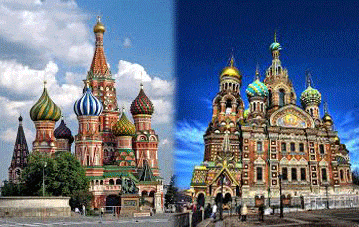
10 Differences Between Moscow and Saint Petersburg
“Moscow is the heart, and Saint Petersburg is the head” -This Russian saying was popularized in the time of Peter the Great and references Moscow’s place as the central upholder of Russian traditions while Saint Petersburg looks west into the social and scientific developments of the future. Is it still applicable today? – You decide. […]

6 Biggest Culture Shocks in Russia
Moving to a different country is hard. You will probably experience culture shock and will definitely have your ups and downs. Here’s a list of challenges you can expect to run into while you adjust to Russia. 1. Language This is a no-brainer, but I couldn’t leave it off the list! I strongly advise learning […]

16 Ways Studying Abroad is Just Like Harry Potter
Did you ever stop to think about the fact that, technically, Harry Potter was also studying abroad? Here are 16 ways that Harry’s adventures are likely to be just like yours. 1. When you first decide you’re going abroad, you’re in a state of shock- you can hardly believe it’s real! 2. Getting on […]

7 Ways Study Abroad is a Second Childhood
After settling in with a host family in Ukraine, I’ve looked back on my notes from my first couple of weeks abroad and come to a realization – in a lot of ways, Abroad-Olivia is a child, just a little bit bigger. I’ve compiled these notes to make a list of seven reasons why living […]
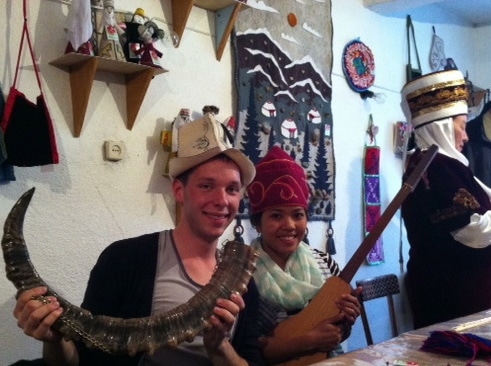
Who are You in Kyrgyzstan
The latest online video to have gone viral is “What Kind of Asian Are You?”, a comedy sketch co-directed by David Neptune and Ken Tanaka for YouTube’s Comedy Week extravaganza, a program that features live performances and video debuts from some of the top names in comedy. In the video, a Korean-American woman is asked […]

The Art of Daily Practice and Conversations
It’s a little bit surprising to look at the calendar and think that half of my first semester in Vladivostok is already gone. Seven weeks seem to have effortlessly drifted by in strict contention with my own efforts at learning the Russian language. I can say that my knowledge of Russian when I arrived in […]

Guide to Shopping in Riga
Riga is a hidden gem on the edge of Europe. This resource will introduce you to some of the shopping opportunities that students and staff participating on SRAS programs in Riga have found there. This resource is part of the much larger SRAS Guide to Living in Warsaw. Central Market: Shopping and Speaking Russian […]
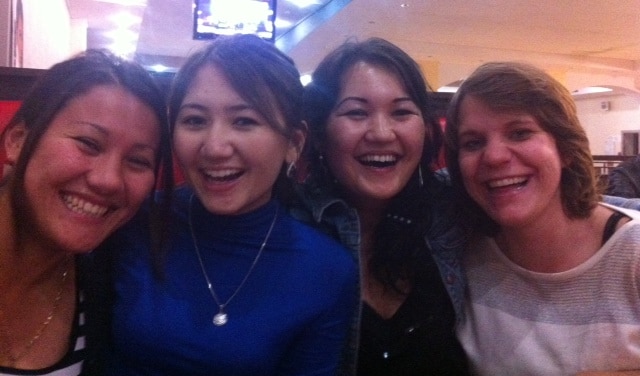
Becoming Kazakh in Kazakhstan: Cultural Immersion in a Host Family
From the moment I decided to come to Kazakhstan to teach English, I knew I wanted to stay in a host family. Multiple times family and friends tried to talk me out of this. After all, why on earth would a young 22-year-old, independent young woman want to move in with another family, taking on […]
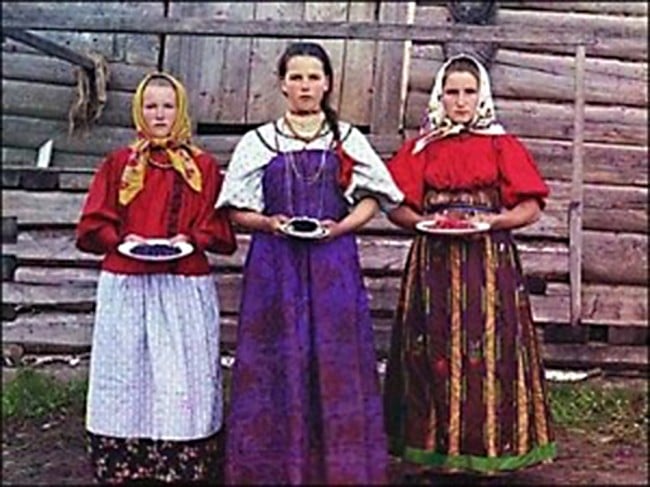
15 Signs You Studied Abroad in Russia
Everyone knows the signs of a post-study abroad collegiate: constantly comparing everything to your study abroad city, using every conversation as an excuse to talk about your lifechanging experience, compulsively scanning the web for cheap plane tickets hoping that someday you’ll have enough money to relive the glory days that were study abroad. If you […]

